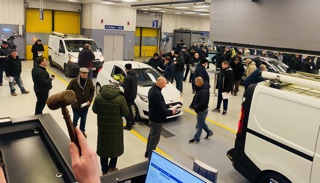For me, the most significant statement is when the article says the IMI’s “own research reveals that 19% of parents would encourage their child to study a vocational programme”. By implication, one assumes that 81% of parents would not encourage their child to take that route.
It is always good if you can find someone to blame. My view is that this dates back when the Thatcher government brought down a binary divide between polytechnics and universities. One of my first jobs was in a polytechnic and it had real strength in delivering trade qualifications, but also allowed people to undertake degrees in applied subjects studying part-time while in work.
When polytechnics moved to become universities, the criteria upon which they were judged changed. They started to appear on league tables competing against Oxford and Cambridge. Structure was determining strategy and, as a result, the ex-polytechnics ended up at the bottom.
Not town versus gown, but both working together
It can be argued that this led to a downgrading of ‘trade and vocational’ qualifications resulting in there appearing to be only two choices – university or apprenticeship.
As I said, apprenticeships, especially the technical ones in our sector, are excellent – the difficulty lies in where they will take the apprentice. Most of the top dealership managers have come through the sales side of the business rather than aftersales. This can act as a ‘glass ceiling’ for someone taking the apprenticeship route.
The choice should not be either/or but both. For our industry to progress and develop, we need a more flexible approach that allows the transition from apprenticeships into certificate, diploma and degree qualifications.
The IMI has done a good job in mapping various qualifications into a framework. The challenge is how people progress through this and how organisations support employees’ career development. Despite all the benefits, we still see a reluctance for organisations to invest in their staff.
Our centre at Loughborough has tried to support this development, admitting people from all aspects of the motor industry onto programmes, often based primarily on their business experience.
If we are to make progress, we need to promote both apprenticeships and formal qualifications as a holistic package. It isn’t ‘town versus gown’ – it has to be town and gown working together.



















Login to comment
Comments
No comments have been made yet.